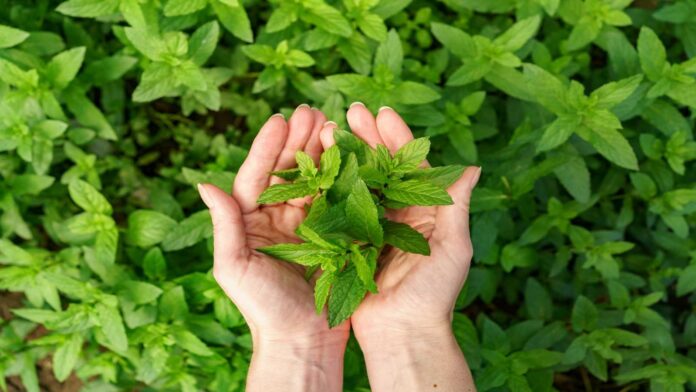How neem and tulsi herbs can help your skin during the monsoon. Learn which Ayurvedic herb is best for glowing skin in the rainy season
The rainy season is a beautiful time. It brings lush greenery and a refreshing smell. However, our skin can face problems during this season. High humidity, sticky sweat, and damp clothes can cause issues like oily skin, rashes, and body odour. While we enjoy the cooling rain, it’s important to take care of our skin to keep it healthy and glowing. One trusted skincare tip during the monsoon is to use neem or tulsi-infused water. Is this just a tradition, or do these Ayurvedic herbs really help? Let’s look at how they compare.
Does monsoon cause skin problems?
During the humid months, the air is sticky, causing sweat to linger rather than evaporate. Tightly fitting clothes can exacerbate the situation, turning your skin into a hotspot for germs and fungi. If neglected, you may find yourself facing skin issues in areas like your underarms, feet, and inner thighs. Additionally, the damp environment is a favourite habitat for bacteria, leading to unwelcome body odour, as per the American Society for Microbiology. But fret not! The first step to keeping your skin fresh is regular cleansing, and that’s where Ayurvedic herbs can help.
What is better for skin: neem or tulsi?
Both neem and tulsi have been integral to traditional Indian skincare for centuries.
Neem, or Azadirachta indica, is a tree from the Indian subcontinent known for its numerous benefits. Its leaves, bark, seeds, and fruits contain compounds with antibacterial, antifungal, and antiviral properties, as per Frontiers in Pharmacology. Used in traditional medicine and natural pest control, neem is popular for promoting dental health, treating skin disorders, and supporting overall wellness.
- Antimicrobial properties: Neem is renowned for its ability to combat germs and bacteria, thereby effectively reducing the risk of skin infections.
- Anti-inflammatory: “It calms irritated skin, making it perfect for those battling rashes or redness”, Dr Sweety Darall Tomar, Dermatologist, tells Health Shots.
- Clear skin hero: Regular use can help keep your skin clear and vibrant, especially during the monsoon.

Tulsi, or holy basil, is a sacred Ayurvedic herb known for its medicinal properties. Valued in Ayurvedic medicine, it promotes health and well-being. “Recognised by its green or purple leaves, Tulsi is used in teas, essential oils, and ayurvedic herbal remedies, with antibacterial, antiviral, and anti-inflammatory benefits”, explains Dr Tomar. It also plays a role in religious rituals as a symbol of purity and virtue.
- Natural shield: Tulsi acts as a protective barrier against germs and bacteria.
- Refreshes skin: It helps soothe irritation and redness, making your skin feel revitalised.
- Balance: “Tulsi is known to balance oily skin, a common challenge during humid weather”, advises the dermatosurgeon.
While both these herbs are potent, your choice may depend on your unique skin needs. Neem shines in addressing infections and irritation, while tulsi is the go-to for refreshment and balancing oily skin.
Ultimately, it comes down to what your skin craves. Why not incorporate both? You can alternate their use to reap the full spectrum of benefits. Whether you choose neem, tulsi, or both, your skin will thank you for the extra care.
You may also like


Benefits of Ayurvedic herbs in the monsoon
“Neem and tulsi can be great for prevention, but they aren’t a one-stop solution for severe infections. If you experience persistent rashes, itching, or any other concerning skin issues, it’s best to consult a dermatologist. Merging simple ayurvedic herbal care with expert guidance can help keep your skin healthy and glowing all season long,” suggests the dermatologist.
- Keeps infections at bay: Using neem or tulsi in your bath water can help combat fungal growth, which is rampant during the rainy season.
- Naturally controls body odour: By reducing bacteria on your skin, these ayurvedic herbs help you stay fresh without relying on harsh deodorants.
- Soothes itchy skin: Humidity can wreak havoc on sensitive skin. Both neem and tulsi naturally calm irritation and provide relief from itching.
- Gentle and safe: Unlike commercial antiseptics, ayurvedic herbs are gentle and suitable for daily use, providing gentle care for your skin.

